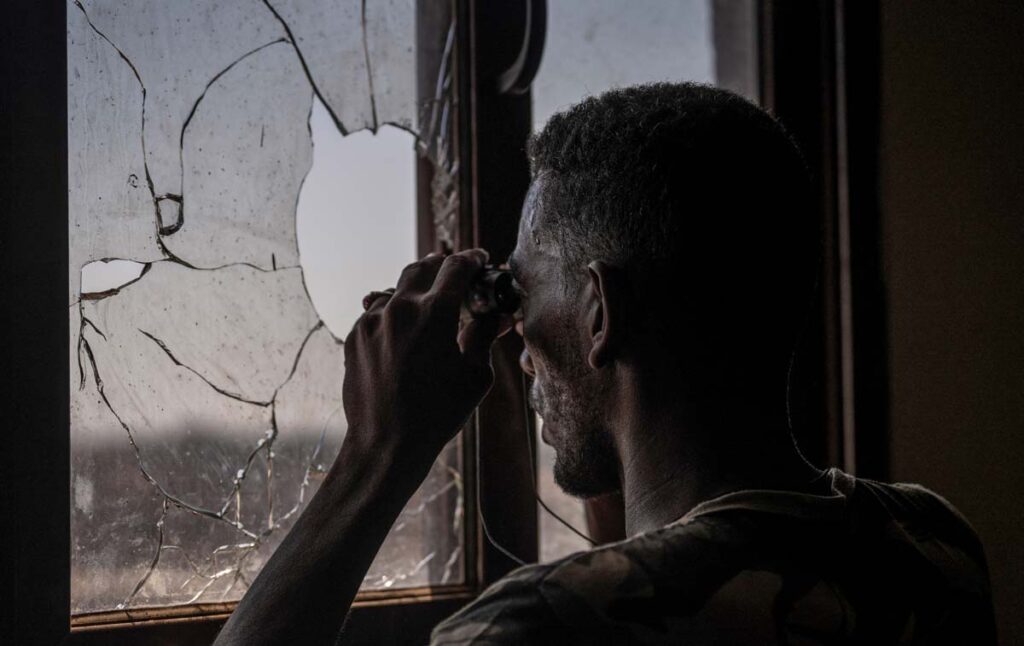Since gaining independence from Britain in 1956, Sudan has experienced a political crisis that has manifested in numerous rebellions, political instability, and wars. The most notable was a comprehensive war that began in mid-April 2023 between the Rapid Support Forces (RSF) and the Sudan Armed Forces (SAF) that continues to this day.
This article explains the major dynamics contributing to Sudan’s unrest and ongoing war. It suggests measures to address the present war and transition crisis and proposes some requirements for sustainable peace and stability.
One can point out two major factors complicating the crisis and prolonging the war that has led to tens of thousands of deaths, the displacement of millions of citizens, the destruction of infrastructure and the erosion of the social fabric.
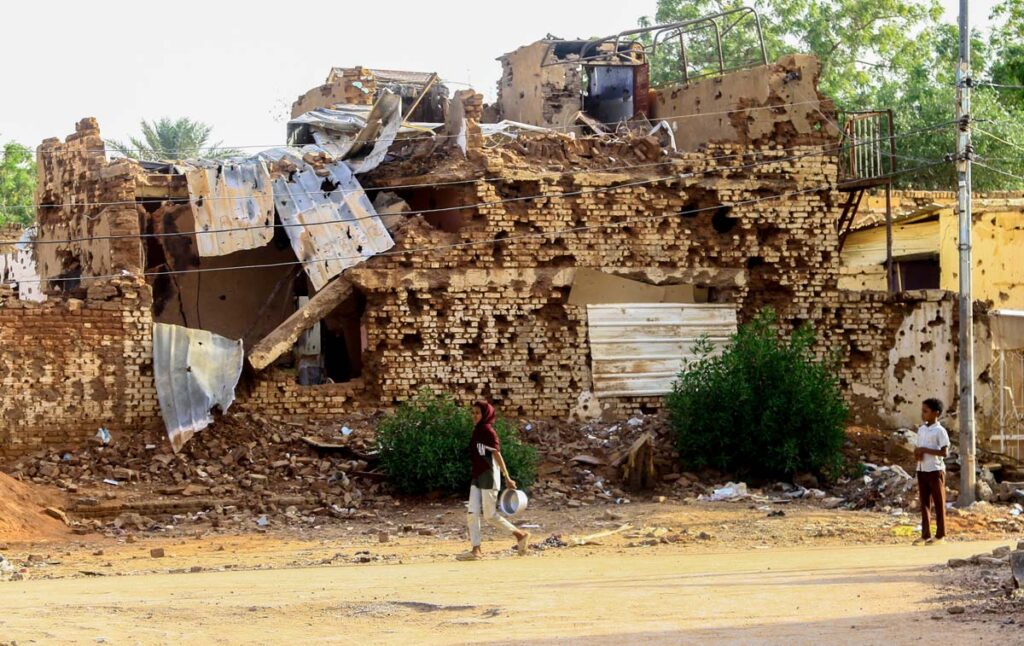
The first is the polarisation/recruitment on an ethnic/regional basis, along with the cross-border tribal extensions with some neighbouring African states, notably Chad, where more than 20 tribes are shared between it and Sudan. Some of these are also located in Niger, Mali and beyond. So, when the war erupted, the RSF, which draws personnel from those common tribes, could get combatants from the tribes of these neighbouring states.
Secondly, there has been foreign interference, with each side gaining support from regional or international forces; the SAF from Egypt, Qatar, Turkey, China, Russia and Iran and the RSF from the United Arab Emirates (UAE), which provided the RSF with weaponry via Chad.
One of the significant root causes of wars in Sudan is the failure of the ruling elite to properly manage the country’s diversity and establish the rule of law, equal citizenship, as well as comprehensive and equitable development. Most conflicts in Sudan are essentially a product of “identity conflicts” because marginalisation, injustice, exclusion, and deprivation are all processes carried out on an identity basis – racial, tribal, or regional.
Discrimination based on identity produced new situations and concepts, such as “ethnic superiority” and “racial class”, along with associated marginalisation and developmental deprivation. This has led to the emergence of rebel movements against the centre on an ethnic basis, affecting the process of peaceful coexistence, national identity building, and stability. The identity crisis in Sudan has been inherited since independence, accumulated through political polarisation on an ethnic basis, and reached its peak under the rule of the Islamic Movement (1989-2019), which added other obstacles (including ideological) to building a comprehensive national identity.
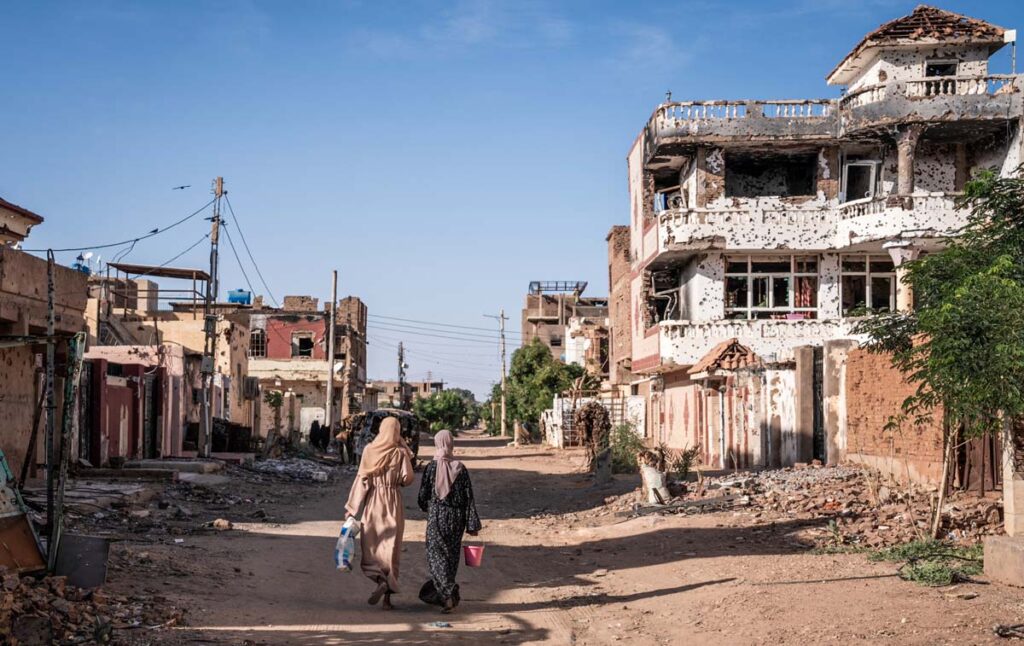
To understand the dynamics of Sudan’s current conflict, it is essential to consider the historical trajectory of power consolidation within the SAF and its affiliated militias. Since the 1989 coup that brought the Islamist Movement to power, the SAF – under Islamist dominance – has systematically established and supported a network of militias to protect the regime. Islamists controlled not only the army but also the police, security, all organs, and state apparatus.
The most prominent of these militias has been the RSF, formally established in 2013. The RSF emerged from the Janjaweed militia, initially mobilised to suppress the Darfuri armed movements that opposed the central government’s exclusionary and Islamist governance model. In 2017, the RSF was further empowered by becoming an “official” paramilitary force when President Omar al-Bashir’s parliament passed an Act in 2017 “legitimising” their authority.
The RSF’s influence expanded rapidly, politically empowered in 2019 when its commander, Mohamed Hamdan Dagalo (known as Hemedti), elevated to the rank of general, was appointed deputy chairman of the Transitional Sovereignty Council (TSC). Economically, the RSF consolidated power through control of lucrative gold mining operations in Darfur, particularly from 2017 onward.
Tensions between the SAF and the RSF first arose during the 2019 popular uprising, when the two groups took opposing positions. During the transitional period that followed, tensions continued to build – particularly toward the end of 2022. This division eventually escalated into the war that broke out on 15 April 2023 between the SAF and the RSF, with civilians bearing the brunt of the violence.
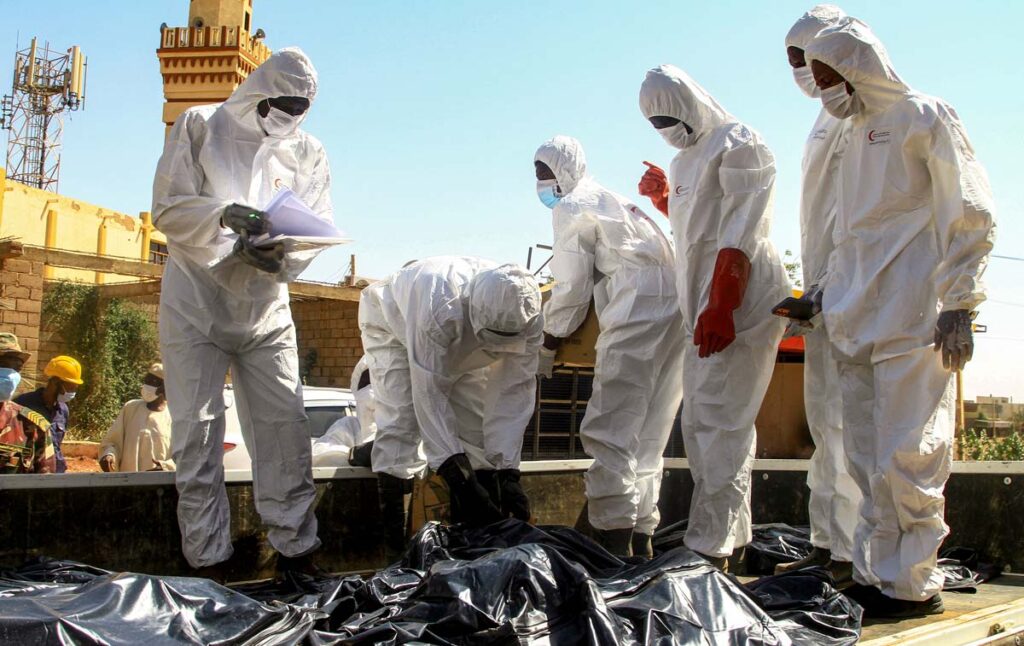
At that time, General Hemedti, publicly declared his support for the Forces of Freedom and Change (FFC) – a broad civilian coalition behind the 2019 uprising, made up of more than 100 civil society organisations and political parties. He also voiced support for a peaceful civilian transition to democratic elections, signalling a break from the Islamist-aligned military leadership within the TSC.
The rift deepened when General Abdel Fattah al-Burhan, the Commander-in-Chief of the SAF and head of the TSC, accused the RSF of rebellion and dismissed Hemedti as deputy chair of the council. Al-Burhan also ordered all officers who had been temporarily seconded to the RSF to return to the regular army. Those who failed to comply were labelled as members of a “fifth column”, implying disloyalty and subversion from within.
In its development from conflicts in the transitional period to the escalation into war, the Sudanese crisis has not been without the influence of external factors. Internal conflict produced a controversial figure like Hemedti, which external circles exploited to play a specific role in achieving their own interests.
Generally, foreign intervention is motivated by the state’s domestic instability and fragility, and it is particularly stimulated by the abundant rich resources with which the country is endowed. Actually, the RSF became better equipped than Sudan’s official armed forces, able to obtain advanced weapons and access different funding sources: gold from the Darfur mines controlled by Hemedti, and European Union funding to help stem illegal migration to Europe from the Horn and the Sahel. The RSF also receives hard currency from the UAE and Saudi Arabia.
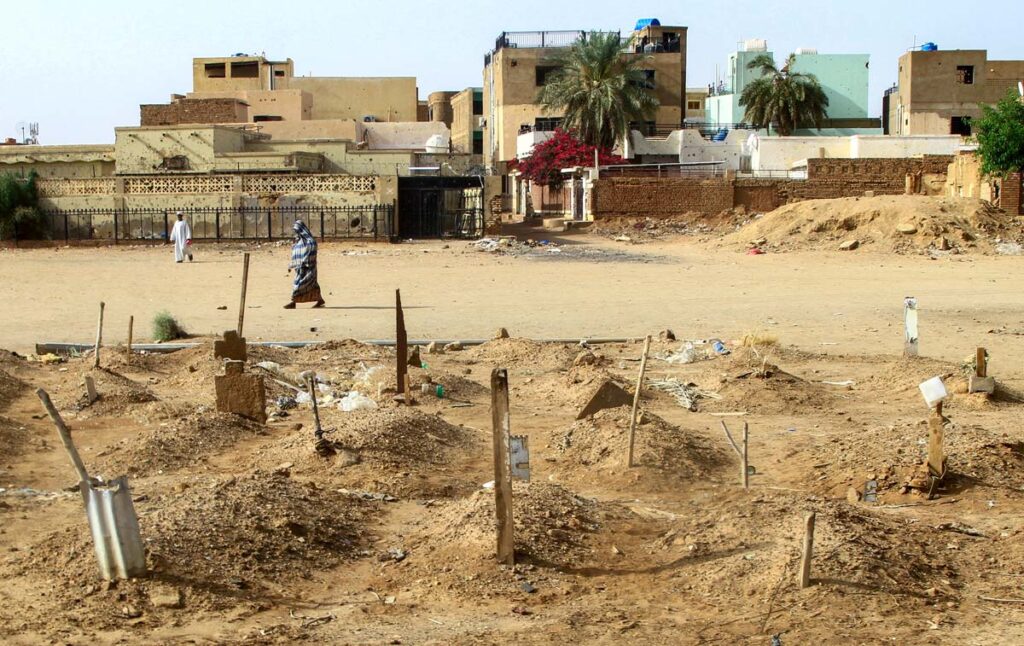
On 18 November 2024, all members of the UN Security Council, except Russia, supported a resolution calling for an immediate ceasefire and protection of civilians in Sudan. Russia’s objection was driven by its vested interests in Sudan’s Islamist military regime, including access to Sudanese gold and a pending agreement to establish a Russian naval base on the Red Sea coast.
Generally, the intersection of internal factors with external interests has increased the complexities of the Sudanese crisis and prolonged the war. Each external party (regional or international) has its agenda, which may not serve the process of stopping the war unless it ensures that the negotiation path guarantees the survival of its ally in the power equation, regardless of whether the solution will serve the Sudanese people.
The obstacles to peace building in Sudan are evident in the fact that Al-Bashir’s military/Islamist government, with its policies of empowerment and exclusion, worked to infiltrate all political and societal entities, civil society organisations, weakening some others, while politicising and subjecting them to the control of the Islamic Movement through the ruling National Congress Party (NCP). While the NCP is no longer officially in power, the Islamists are still a significant obstacle to building a stable state because of their focus on returning to power and imposing themselves by force on the people.
The essence of a peace-building process entails basic requisites, and this article recommends the following:
- Removing parties to the conflict from the transitional political process and forming a transitional government of efficient and independent technocrats. This can only be achieved through pressure and support from the international community because those who hold power through arms will not easily give up for the sake of national stability.
- Dissolving all militias, whether those founded by the previous regime or armed groups (in Darfur, South Kordofan, and Blue Nile), and building a single professional national army that does not belong to any political party, with recruitment and admission to the military academy based on technical criteria adopted by all armies worldwide.
- Rebuilding political parties on solid foundations so that they fit the definition of a “political party”, and merging small parties into fewer, stronger, and more effective ones that work to strengthen legitimacy and enhance political stability. This can be achieved by introducing a “threshold” system as part of the conditions for registering a political party.
- Peace-building. War does not end merely by stopping fighting at any moment. The more important issue is building real, comprehensive, and sustainable peace by focusing on the requirements of peace-building as indicated above. This requires, among other things, restoring citizens’ trust in their government by dealing with them impartially, without racial/regional or tribal classifications, ideological biases, or political/partisan affiliation.
- The peace-building process requires not only time but also radical changes in how the government handles Sudanese crises, including the necessity of having a state led by a neutral elite in dealing with citizens, regions, and various societal and ethnic components.
- Combating hate speech and criminalising the stirring up of tribal and political polarisation on a racial/ethnic or regional basis.
- Among the mechanisms for sustainable peace building is spreading a culture of peace and instilling values of tolerance through intensive mobilisation towards building peaceful coexistence using specialists in various relevant fields (including opinion leaders, columnists, thinkers, religious scholars and preachers, sociologists, psychologists, public policy and strategy experts, leaders of native administration), with high levels of coordination in terms of a unified discourse.
- Adopting transitional justice by forming a “council of elders” composed of national figures who enjoy nationwide acceptance.
- Collecting weapons from all militias and armed groups and criminalising anyone carrying weapons other than official and regular forces.
Political and military polarisation on ethnic/racial/regional bases has caused fragmentation and rifts within Sudan’s social fabric. This has divided people into two camps: the SAF, which claimed to represent the state, and the RSF, which claimed to lead a revolution of Sudan’s marginalised peoples against an oppressive Islamist-backed military regime and their alliances.
Based on this realistic reading of the Sudanese crisis, and the war into which the state has been drawn, the solution lies in removing the parties to the conflict from power in the transitional period and supporting the formation of a technocratic government of independent experts – drawing on two previous successful transitional experiences (1964-1965 and 1985-1986).
Some experts and scholars have worked out profound visions and studies on addressing the transitional period crisis after the war ends. Some have developed a comprehensive strategy for state-building, and others have prepared a national project and political vision for a system of governance that provides a radical solution to the political crisis and instability in Sudan.
If the international community genuinely supports a unified and stable Sudan, it must stand with the Sudanese people – the silent majority whose voice has been lost amid the conflict. Two forces drive this war: one seeks to return to power despite being ousted in a popular revolution that drew global sympathy; the other hijacked that revolution and monopolised power during the transitional period, lacking the experience to navigate the challenges of transition, including counter-revolutionary threats.
This failure created an opening for Islamist forces, who, through their influence over the army, orchestrated the dissolution of the civilian transitional government – the de facto representative of the uprising – through what was widely condemned as a military coup.
Without strong international pressure and intervention, the war is unlikely to end soon, and radical Islamist factions will continue to dominate, potentially destabilising the wider region.
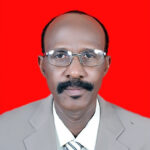
Abdu Mukhtar Musa
Professor Abdu Mukhtar Musa received all his undergraduate and postgraduate certificates from the University of Khartoum, Sudan. He served as a professor of political science at Omdurman Islamic University, Sudan. He has published more than ten books and several journal articles in English and Arabic in different parts of the world.

